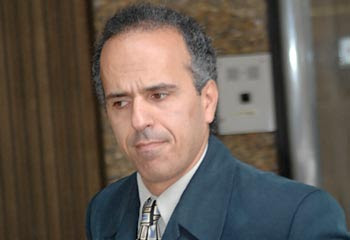 The Baha’i administration claims there is no resident Baha'i population in Israel. The 650-700 Baha'is who can be found here at any given time are all volunteers who have come from some 85 countries to do service for periods ranging from a few months to a few years. The Baha'is who live here as tourists or temporary residents do not engage in any form of missionary activity. Some people erroneously believe that this is in accordance with the country's anti-missionary laws, but in fact it is a self-imposed Baha'i prohibition against seeking or accepting new believers into the Baha'i faith in the Holy Land that dates back to the time when the country was still under Ottoman rule. No one knows why. It is one of several inexplicable Baha'i regulations.
The Baha’i administration claims there is no resident Baha'i population in Israel. The 650-700 Baha'is who can be found here at any given time are all volunteers who have come from some 85 countries to do service for periods ranging from a few months to a few years. The Baha'is who live here as tourists or temporary residents do not engage in any form of missionary activity. Some people erroneously believe that this is in accordance with the country's anti-missionary laws, but in fact it is a self-imposed Baha'i prohibition against seeking or accepting new believers into the Baha'i faith in the Holy Land that dates back to the time when the country was still under Ottoman rule. No one knows why. It is one of several inexplicable Baha'i regulations.It is a well known fact that according to a letter of Universal House of Justice1 the Baha'i s are not suppose to teach and convert the Jew population in Israel. Infact if a Jew outside Israel wants to accept Baha’i Faith and settle in Israel, then his declaration card is not to be accepted
But The world Christian encyclopedia (WCE)2 has something else to offer.
In the year 1990, the number of Baha’is residing in Israel were 9500. The source of the information was Barrett, David B., World Christian Encyclopedia (2001), Data transcribed by Simeon Kohlman Rabbani
In the year 2000, the Baha’i population in Israel was 13734 which constituted 0.22% of the total population of Israel, again the source of this information was David B., World Christian Encyclopedia (2001), Data transcribed by Simeon Kohlman Rabbani
If the WCE information is true than it is clear that the Baha’i Administration at Haifa is misusing the Hospitality offered so generously by the State of Israel, This is indeed a deceit to the Host country which has so generously offered all its help and hospitality to the Baha’is and the Baha’i Administration. Their hypocrisy has been exposed by WCE; the other facts which are inexpiable are following facts:
• For years the Haifan Baha’i leadership have been telling visiting pilgrims that they envisioned a day when the Baha’i establishment would become the government of Israel and that the Israeli population would convert en masse to Baha’i Faith.
• One of a very senior Baha’i official Mr. Aliakbar Forutan said that a day will come when the Universal House of Justice will rule over the Israel.
• The present Persian counselors say in private that, we have to launch Intensive program of growth in Jerusalem and Tel Aviv. Most of the Persian counselors have two passports one Israeli and other Persian.
• As far as I am concerned, the unchecked presence of Haifan Baha’is in Israel is as big and long-term existential threat to Israel itself. When you have an organization openly fantasizing about becoming the governing authority over all of Israel-Palestine and giving false information about the presence of Baha’is in Israel then it is certain that it is more a threat to the State of Israel then blessing...
(1) For your information, the people in Israel have access to factual information about the Faith, its history and general principles. Books concerning the Faith are available in libraries throughout Israel, and Israelis are welcome to visit the Shrines and the surrounding gardens. However, in keeping with a policy that has been strictly followed since the days of Bahá'u'lláh, Bahá'ís do not teach the Faith in Israel. Likewise, the Faith is not taught to Israelis abroad if they intend to return to Israel. When Israelis ask about the Faith, their questions are answered, but this is done in a manner which provides factual information without stimulating further interest.
(2) World Christian Database (WCD) – Updated and maintained by the Center for the Study of Global Christianity, the World Christian Database is based on information provided by the World Christian Encyclopedia and World Christian Trends. Both of these books serve as standards for international religious statistics, and provide comprehensive estimates of religious affiliation around the world.





















